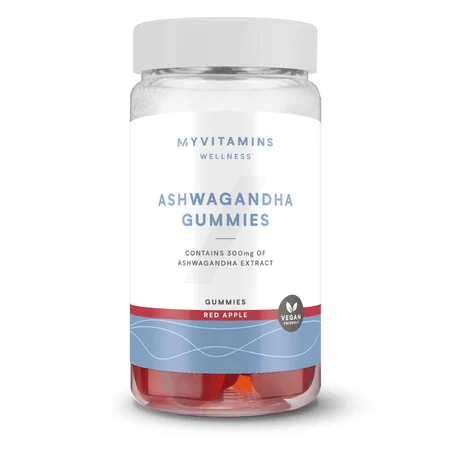Ashwagandha: The Benefits, Side Effects & Uses


Ashwagandha, also known as Indian Ginseng, has a long history of use in traditional and ayurvedic medicine.1 However, it can also provide potential benefits related to performance and overall health. So, let’s dive in and find out exactly what this supplement actually does.
- What is Ashwagandha?
- History of Ashwagandha
- Uses of Ashwagandha
- How Does Ashwagandha Work?
- Benefits of Ashwagandha
- Ashwagandha Dosage
- Ashwagandha FAQs
What is Ashwagandha?
Ashwagandha, also known as Indian ginseng or winter cherry, is a popular herb in Ayurvedic medicine, a form of traditional Indian medicine focused on natural healing.
Its roots and leaves are used to make various traditional remedies, and its potential health benefits are said to include reduced stress and anxiety, and improved cognitive and immune function.1
Ashwagandha is an adaptogen, a type of substance believed to help the body adapt to stress and support overall wellbeing.
History of Ashwagandha
Ashwagandha has been used in traditional medicine for thousands of years. Its use can be traced back to ancient Indian Ayurvedic medicine, which dates back over 3,000 years.1
Ashwagandha has traditionally been used to treat a variety of ailments, including arthritis, anxiety, and insomnia. It has also been used as an aphrodisiac and to promote fertility.1
In the early 20th century, scientific research began to explore the medicinal properties of ashwagandha. Studies have found that ashwagandha contains a variety of compounds thought to have a range of health benefits.1
In recent years, ashwagandha has seen a dramatic rise in popularity, with many celebrities saying it's one of their go-to supplements.
Uses of Ashwagandha
Ashwagandha can be taken in several supplement forms, including capsules, gummies, alongside other vitamins and minerals, and even mixed in protein powders.
How Does Ashwagandha work?
Ashwagandha contains a variety of biologically active compounds thought to have health benefits, although it’s not fully known how they work.1
One of the primary ways that ashwagandha is believed to work is by reducing levels of the stress hormone cortisol. Chronically elevated cortisol levels can lead to a range of negative physical and mental health issues.
Ashwagandha has also been shown to have antioxidant properties, which means that it can help protect against damage caused by free radicals, unstable molecules that can damage cells.
Ashwagandha is also believed to help with inflammation. Long-term inflammation is a contributing factor to many chronic diseases.
Finally, ashwagandha may have a positive impact on cognitive function, including memory and attention. It’s believed that ashwagandha may help protect brain cells from damage and promote the growth of new neural connections.
Benefits of Ashwagandha
Arguably the most popular benefit attributed to ashwagandha supplementation is stress.
While small amounts of stress can be helpful in motivating us and improving our performance, chronic stress can lead to a prolonged increase in cortisol levels. This can have a negative effect on mental and physical health, so it’s important to manage stress levels.
Ashwagandha can help support your metabolism
While more research is needed to fully understand how ashwagandha supports metabolism, studies suggest it may have a range of potential benefits.
Ashwagandha is associated with having a “rejuvenating” effect on the body, particularly in relation to the mitochondria, which are the energy-creating components of the cell.2
This may also be related to the positive effect ashwagandha may have on sleep quality sleep and stress.1
Several vitamins are also good for supporting a healthy metabolism.
This includes B vitamins, a group of vitamins that are essential for converting food into energy. They play a key role in the metabolism of carbohydrates, fats, and proteins. Some of the most important B vitamins for metabolism include B1 (thiamin), B2 (riboflavin), B3 (niacin), B5 (pantothenic acid), B6, and B12.
Another important vitamin is vitamin D, which is important for maintaining healthy bones but also plays a role in metabolism. Studies have suggested that vitamin D deficiency may be linked to obesity and metabolic disorders.3
Ashwagandha may help with weight loss
Results from some studies have suggested that ashwagandha may have a positive impact on body weight and body composition.
A 2016 study found that overweight adults who took ashwagandha supplements for eight weeks had a reduction in body weight, body mass index (BMI), and waist circumference compared to a placebo group.4
It's possible that ashwagandha may indirectly support weight loss by reducing stress and promoting better sleep, both of which can have positive health effects on metabolism and body weight.4
Ashwagandha could help reduce body fat
Like changes in weight, it’s likely that any changes in body fat composition are from ashwagandha’s effect on sleep and stress levels.
Additionally, any change in body fat may also be attributed to improving variables related to strength/power, cardiorespiratory fitness and fatigue/recovery in healthy men and women following ashwagandha supplementation.5
Athletic individuals may benefit from ashwagandha supplementation and the effect it has on improving performance and recovery may contribute to long-term beneficial effects on body composition levels.
Ashwagandha may support healthy cholesterol levels
Research suggests that ashwagandha may have beneficial effects on cholesterol levels and lipid profiles.
An older study first looked at ashwagandha supplementation in volunteers who had pre-existing high levels of serum cholesterol and an unhealthy cholesterol profile. The researchers found a significant decrease in serum cholesterol, triglycerides, LDL (low-density lipoproteins) and VLDL (very low-density lipoproteins) cholesterol following ashwagandha supplementation.7
And a more recent study of healthy volunteers who did not have high pre-existing cholesterol levels also revealed promising results, with data showing a reduction in cholesterol levels.8 Interestingly, total body fat percentage was also lower.
Ashwagandha may improve strength and recovery time
Ashwagandha may also have benefits for exercise performance and recovery.
A 2021 meta-analysis found that active, healthy people who took ashwagandha saw improvements in strength, power, cardiorespiratory fitness, fatigue and recovery.5
On top of this, a 2020 systematic review found that ashwagandha may help improve cardiovascular health. Researchers looked at a range of studies investigating the impact of supplementation on VO2 max on healthy adults and athletes. Improved VO2 max was seen in both groups.8
Finally, the STAR trial found that ashwagandha supplementation led to significant improvements in average squat power, peak bench press power, 7.5 km time trial performance, and perceived recovery scores in healthy, active individuals.9
Ashwagandha may improve attention and memory
Studies suggest that ashwagandha may have potential benefits for promoting cognitive function, including attention and memory. It's possible that these benefits may be due to the anti-inflammatory and antioxidant properties of ashwagandha, which have been shown to help reduce oxidative stress and inflammation in the brain. It may also relate to ashwagandha’s potential positive effect on sleep quality and cortisol.1
Ashwagandha can help support your immune system
Traditional uses of ashwagandha in Ayurvedic medicine involve using the herb to support the immune system and prevent illness.
While more research is needed to confirm these potential benefits, studies do suggest that ashwagandha may help support immune function.9
It's possible that these potential benefits of ashwagandha may be related to its anti-inflammatory and antioxidant properties. It may also be down to the role ashwagandha has in reducing cortisol, the stress hormone, as stress can reduce the immune system’s ability to fight infections.
Ashwagandha dosage
The dosage of our Ashwagandha Gummies is two gummies daily. We also have Ashwagandha KSM66 Capsules, which require one capsule daily.
Ashwagandha FAQs
When should you not take ashwagandha?
While ashwagandha is generally considered safe for most people, it may not be suitable for people who are or have any of the following:
- Pregnant or breastfeeding
- Thyroid disorders
- Autoimmune conditions
- Taking medication that affects the central nervous system, like sedatives or anti-anxiety medicine, or for high blood pressure or thyroid disorders.
Is ashwagandha safe to take every day and alongside other vitamins?
Ashwagandha is a supplement with roots in ancient medicine, its potential health benefits
Ashwagandha is generally considered safe to take every day, and many people take it as a daily supplement. But as with any supplement, it’s best to consult with your healthcare provider to determine if it’s appropriate for you and to what the appropriate dosage would be.
As for taking ashwagandha with other supplements, there are no known interactions between ashwagandha and other vitamins or minerals. But again, it’s best to follow recommended dosages and to speak with your healthcare provider about any concerns you may have about taking supplements together.
Can you take too much ashwagandha?
While there’s no official safe upper tolerable limit for ashwagandha most studies have safely used doses ranging from 250 to 600mg per day.
Taking larger doses of ashwagandha may potentially increase the risk of some possible side effects. Some of these may include:
- Gastrointestinal upset, such as nausea, vomiting, and diarrhoea
- Headaches
- Dizziness
- Insomnia
Uses of ashwagandha
- May help reduce stress and anxiety
- May support sleep quality and quantity
- May enhance brain function and memory
- May help reduce inflammation and oxidative stress in the body
- May help reduce cortisol levels
- May improve muscle strength and endurance
- May support immunity
Take home message
Ashwagandha has its roots in ancient medicine and has many potential health benefits, among them stress, sleep, cognitive function and inflammation.
But as with most supplements, it’s best to consult with a doctor or medical professional before including it in your daily supplement routine.

- Mandlik Ingawale, D. S., & Namdeo, A. G. (2021). Pharmacological evaluation of Ashwagandha highlighting its healthcare claims, safety, and toxicity aspects. Journal of dietary supplements, 18(2), 183–226. https://doi.org/10.1080/19390211.2020.1741484
- Singh, N., Bhalla, M., de Jager, P., & Gilca, M. (2011). An overview on ashwagandha: a Rasayana (rejuvenator) of Ayurveda. African journal of traditional, complementary, and alternative medicines : AJTCAM, 8(5 Suppl), 208–213. https://doi.org/10.4314/ajtcam.v8i5S.9
- Vranić, L., Mikolašević, I., & Milić, S. (2019). Vitamin D Deficiency: Consequence or Cause of Obesity?. Medicina (Kaunas, Lithuania), 55(9), 541. https://doi.org/10.3390/medicina55090541
- Choudhary, D., Bhattacharyya, S., & Joshi, K. (2017). Body Weight Management in Adults Under Chronic Stress Through Treatment With Ashwagandha Root Extract: A Double-Blind, Randomized, Placebo-Controlled Trial. Journal of evidence-based complementary & alternative medicine, 22(1), 96–106. https://doi.org/10.1177/2156587216641830
- Bonilla, D. A., Moreno, Y., Gho, C., Petro, J. L., Odriozola-Martínez, A., & Kreider, R. B. (2021). Effects of Ashwagandha (Withania somnifera) on Physical Performance: Systematic Review and Bayesian Meta-Analysis. Journal of functional morphology and kinesiology, 6(1), 20. https://doi.org/10.3390/jfmk6010020
- Andallu, B., & Radhika, B. (2000). Hypoglycemic, diuretic and hypocholesterolemic effect of winter cherry (Withania somnifera, Dunal) root. Indian journal of experimental biology, 38(6), 607–609.
- Pérez-Gómez, J., Villafaina, S., Adsuar, J. C., Merellano-Navarro, E., & Collado-Mateo, D. (2020). Effects of Ashwagandha (Withania somnifera) on VO2max: A Systematic Review and Meta-Analysis. Nutrients, 12(4), 1119. https://doi.org/10.3390/nu12041119
- Ziegenfuss, T. N., Kedia, A. W., Sandrock, J. E., Raub, B. J., Kerksick, C. M., & Lopez, H. L. (2018). Effects of an Aqueous Extract of Withania somnifera on Strength Training Adaptations and Recovery: The STAR Trial. Nutrients, 10(11), 1807. https://doi.org/10.3390/nu10111807





